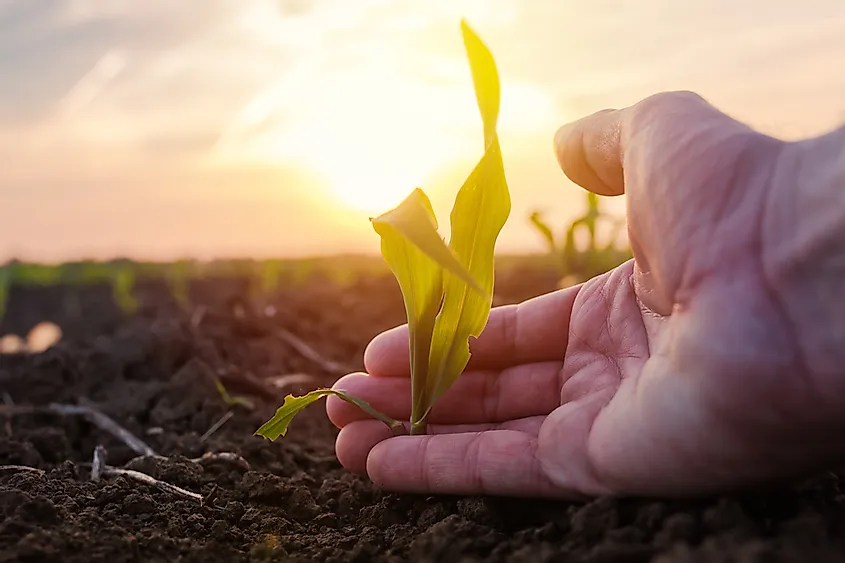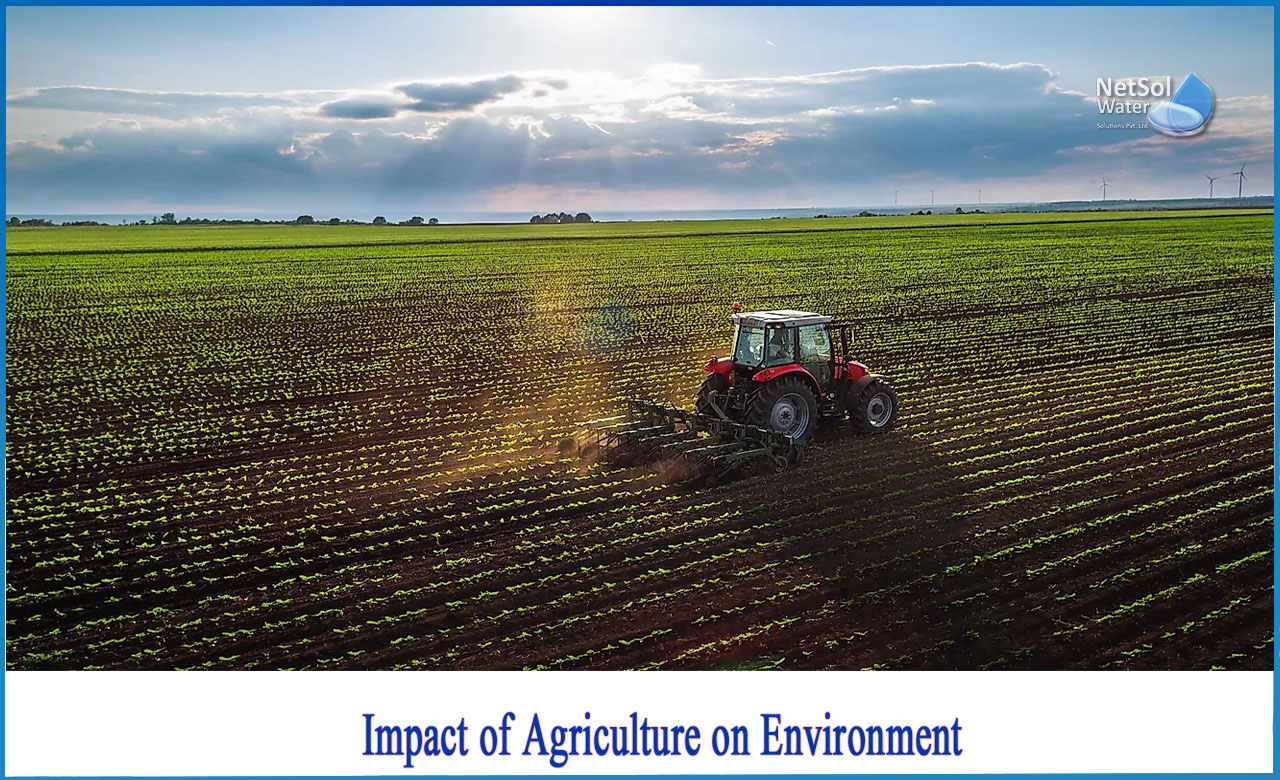Overview
Agriculture can have a significant impact on the ecosystems that surround it. Agriculture's environmental impact is the result of various farming practices, and it varies greatly depending on the country under consideration. However, the majority of the time, the impact is negative. It also heavily depends on the agricultural practices used in various parts of the world.
Many climate variables can also have an impact on the environmental impact of agriculture. This includes both temperature and precipitation. Naturally, the type of machinery used, as well as the methods of handling livestock, play an important role. Climate change, dead zones, genetic engineering, pollutants, deforestation, soil degradation, waste, and other critical environmental issues are all linked to agriculture.

What are the impacts of agriculture on environment?
Agriculture's environmental impact includes effects on a wide range of factors, including the soil, water, air, animal and soil diversity, people, plants, and the food itself.
Because agriculture is so important to global social and environmental systems, the international community has committed to increasing food production sustainability as part of Sustainable Development Goal to "End hunger, achieve food security, improve nutrition, and promote sustainable agriculture."
Agriculture was highlighted as both a driver and an industry under threat from environmental degradation in the United Nations Environment Program’s 2021 "Making Peace with Nature" report.
Impact no.1: Climate Change
Agriculture is inextricably linked to climate change. Both of these processes occur on a global scale, and while climate change has a negative impact on agriculture through higher temperatures and carbon dioxide levels, it is far more interesting to examine how agriculture affects climate change. This is primarily accomplished through the emission of greenhouse gases. These gases, which include carbon dioxide and nitrous oxide, have a negative impact on climate change.
Fertilization and pesticides are also used in agriculture, which releases phosphorus and nitrate into the air, among other things. This can have an impact on the quality of the soil, air, and water. It can also have an impact on our planet's biodiversity and change the land cover. This means that the Earth's ability to absorb or reflect light and heat can change dramatically. This results in radioactive forcing, which is the difference between absorbed and reflected energy.
Impact no.2: Land Degradation
Land degradation, in one form or another, is a serious concern that threatens agricultural sustainability. Landslides caused by rain and flowing water in hilly areas, as well as deforestation, overgrazing, and poor cultural practices in forests and other plain areas, expose soil to water and wind erosion.
Waterlogging caused by rising water tables, particularly along rivers, renders soil unfit for cultivation and affects 8.5 million hectares of land. Similarly, increased reliance on intensive agriculture and irrigation has resulted in salination, alkalization, and water logging in some of the country's irrigated areas.
Impact no.3: Biodiversity
India is a country with a wide range of agro-climatic conditions that support a diverse range of animals and plants. In terms of plant diversity, India is estimated to be tenth in the world and fourth in Asia. A number of plant and animal species are becoming extinct as agriculture becomes more commercialized.
The crops with the highest profits are covering more land, while the crops with the lowest profits are rapidly declining, causing a slew of environmental issues. Concerns have been raised about the depletion of vegetative cover, such as grasslands and forest tree species, as well as the extinction of wild animals, birds, and insects. Another estimate lists over 1,500 plant species, 79 mammals, 44 birds, 15 reptiles, 3 amphibians, and several insects as endangered.
Impact no.4: Pest Problem
As crop patterns have shifted, irrigation area has increased, and cropping intensity has increased, the pest problem has become extremely severe. The indiscriminate and increased use of pesticides has exacerbated the severity of pests.
The population of predatory birds and insects has been rapidly declining, resulting in a lack of natural pest control. The high use of dangerous pesticides has a direct impact on human and animal health. A wide range of cases of pesticide residue and human and animal consumption have resulted in health risks.
Impact no.5: Industrial and agricultural waste disposal
The proper use of byproducts such as paddy straw and rice husk has not been made. The combustion of such by-products increases carbon dioxide and carbon monoxide levels in the atmosphere, causing respiratory problems in both animals and humans. There is a need for recycling agricultural wastes through enterprises such as dairy, poultry, and fishery, as well as by-product processing and ploughing in the field as organic matter.
Conclusion
Agriculture mechanization necessitates the use of a variety of energy resources, including diesel, electricity, and gasoline. Furthermore, increased fertilizer use has a negative impact on the country's ecology through air pollution. Affluent water, smoke, and non-biodegradable solid waste from industries and domestic uses have also been linked to plant and animal toxicity, particularly in fish, as well as unbalanced soil nutrients, which must be addressed through treatment plants like that manufactured by Netsol Water.
Netsol Water is Greater Noida-based leading water & wastewater treatment plant manufacturer. We are industry's most demanding company based on client review and work quality. We are known as best commercial RO plant manufacturers, industrial RO plant manufacturer, sewage treatment plant manufacturer, Water Softener Plant Manufacturers and effluent treatment plant manufacturers. Apart from this 24x7 customer support is our USP. Call on +91-9650608473, or write us at enquiry@netsolwater.com for any support, inquiry or product-purchase related query.



